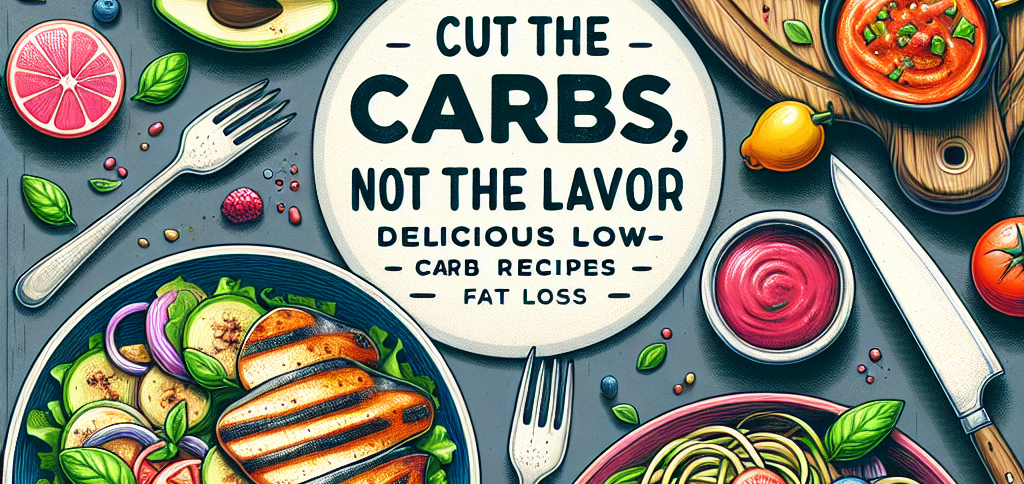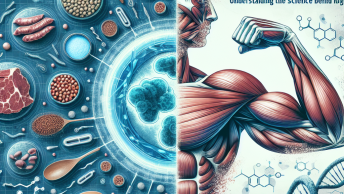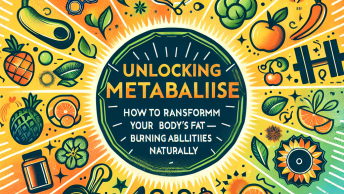When embarking on a journey toward fat loss, countless diet options are available, each promising transformative results. Among them, a low carb diet has gained immense popularity for its effectiveness in promoting weight loss. This article provides ten essential insights into the low carb diet, helping you understand how it works and why it can be an excellent choice for fat loss.
1. Understanding Low Carbohydrate Diets
A low carb diet focuses on reducing the intake of carbohydrates, primarily found in sugary foods, pasta, and bread. Instead, the diet emphasizes proteins and healthy fats. The goal is to shift the body’s metabolism from burning glucose (from carbs) to burning stored fat, thereby aiding in fat loss.
2. How Low Carb Diet Promotes Fat Loss
When you reduce your carb intake, the body enters a state called ketosis—where it starts burning fat for fuel instead of carbohydrates. This metabolic shift is effective for fat loss, as the body begins to utilize fat stores for energy. Many people experience significant weight loss during the initial weeks of such a diet.
3. Types of Low Carb Diets
There are various types of low carb diets, each catering to different preferences and lifestyles. Common options include:
- Ketogenic Diet: Very low in carbs (usually below 20-50 grams per day) and high in fats, shifting your body into ketosis.
- Atkins Diet: A phased low-carb diet that gradually increases carb intake to find a personal balance for weight management.
- Paleo Diet: Focuses on whole foods and eliminates processed sugars and grains, resulting in a naturally lower carb intake.
4. Health Benefits Beyond Fat Loss
A low carb diet isn’t just about shedding pounds. Research has shown several health benefits associated with lowering carbohydrate intake, including:
- Improved Blood Sugar Control: Reducing carbs can help stabilize blood sugar levels, making it beneficial for those with diabetes or insulin resistance.
- Increased HDL Cholesterol: Low carb diets can enhance levels of HDL (good cholesterol), improving heart health.
- Reduced Hunger Levels: Many individuals report decreased appetite while on low carb diets, helping to manage food intake without feeling deprived.
5. Foods to Include in a Low Carb Diet
Stocking your kitchen with the right foods is crucial for success on a low carb diet. Focus on incorporating:
- Lean Proteins: Chicken, turkey, fish, and plant-based proteins will help you feel full longer.
- Healthy Fats: Avocados, nuts, seeds, olive oil, and coconut oil provide essential nutrients and keep you satiated.
- Non-Starchy Vegetables: Leafy greens, broccoli, cauliflower, and bell peppers are low in carbs and high in fiber and vitamins.
6. Foods to Avoid
To maximize fat loss and stay on track, it’s essential to avoid high-carb foods. Limit or eliminate:
- Sugary Foods: Sweets, candies, and soft drinks are high in sugar and can interfere with weight loss efforts.
- Grains: Bread, pasta, rice, and other starchy foods can spike insulin levels and hinder fat burning.
- Processed Foods: Many convenience foods contain hidden sugars and unhealthy carbs that can disrupt your diet.
7. Common Myths About Low Carb Diets
Despite its popularity, there are common misconceptions surrounding low carb diets. Let’s debunk a few:
- Myth 1: You can’t eat carbs again: Many people believe they’ll never be able to enjoy carbs. In reality, a sustainable low carb diet includes a balanced approach to carb intake, allowing for occasional treats.
- Myth 2: Low carb equals low energy: Initially, you might feel fatigued, commonly referred to as the "keto flu." However, once adapted, many individuals report increased energy levels and mental clarity.
8. The Role of Exercise in a Low Carb Diet
While a low carb diet can accelerate fat loss, combining it with regular exercise enhances results. Engaging in a mix of cardiovascular and strength training exercises not only aids in fat burning but also promotes muscle retention, crucial for a well-rounded fitness routine.
9. Meal Planning and Preparation
Meal planning is a vital component for anyone on a low carb diet. Prepare ahead to ensure you have low carb options readily available. Here are some tips:
- Batch Cooking: Prepare meals in advance to avoid last-minute high-carb choices.
- Snack Smart: Keep low-carb snacks on hand, like nuts or cheese, to curb hunger between meals without derailing your diet.
- Hydration: Drink plenty of water and consider herbal teas to stave off hunger and keep yourself hydrated.
10. Onboarding Resources
For those ready to embark on a low carb diet journey, resources and guidance are essential. Many books and online programs detail meal plans, recipes, and tips for staying on track. If you’re looking for a comprehensive resource, Click Here to learn more about effective low carb diet strategies that can help you achieve your fat loss goals.
Conclusion
A low carb diet can be an effective strategy for fat loss when approached with knowledge and awareness. By understanding its principles, incorporating the right foods, and debunking myths, anyone can leverage this dietary approach for better health and sustainable weight loss. Remember, consulting with a healthcare professional or nutritionist can also provide tailored advice, helping you to maximize your results safely and effectively.
With commitment and planning, the low carb diet can pave the way for lasting fat loss and enhanced wellness. So, equip yourself with the necessary tools, and get ready to embark on your transformation journey!






